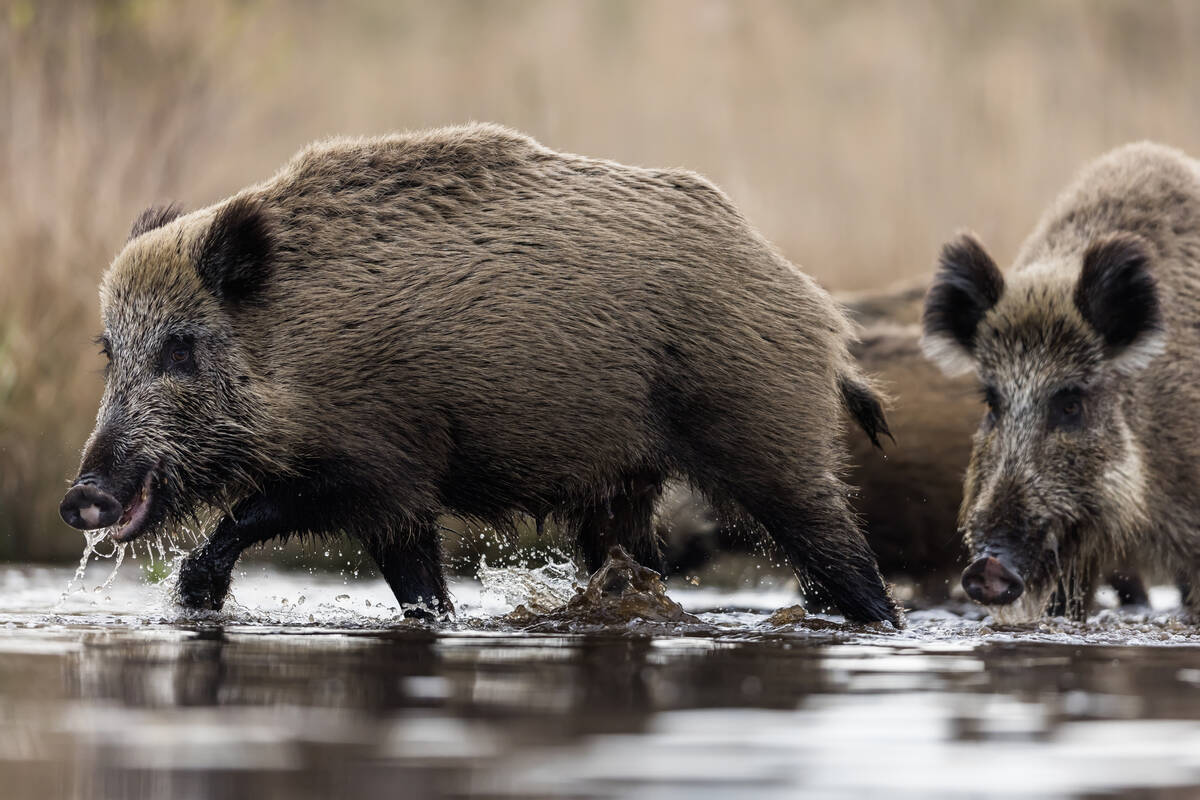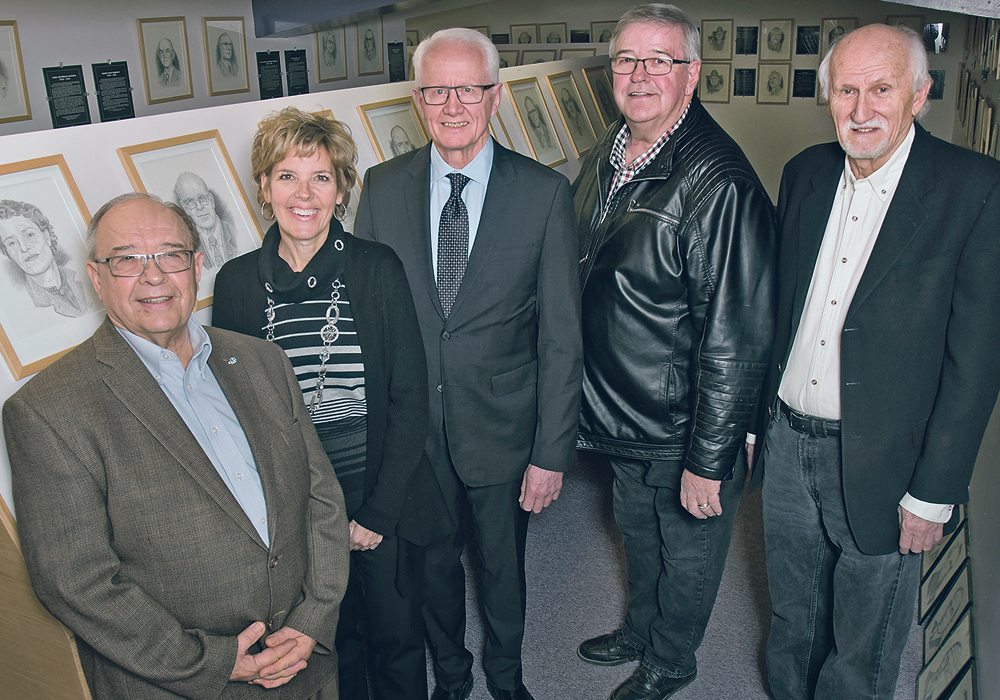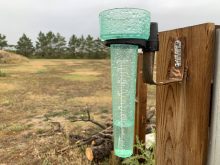Members come from a wide variety of backgrounds, including research and education, grain and livestock
This year’s crop of five inductees into the Saskatchewan Agriculture Hall of Fame includes three from the fields of research and education, one from grain and one from the livestock/horse industry.
“Honoured and surprised,” are words all five recipients expressed upon learning of their achievement.
“Dumbfounded — very seldom I don’t have something to say and when I was talking to Reed (Andrew) I didn’t know how to respond because it never even crossed my mind about anything like this. It’s a great honour,” Douglas Howe said Dec. 4 in the Hall of Fame, housed at the Western Development Museum in Saskatoon.
Read Also

Manitoba bans wild boar possession
Manitoba has tightened the regulatory status of Eurasian wild boar in an effort to help fight back against invasive wild pigs.
The Moose Jaw livestock producer is known for his role in marketing and promoting cattle. The Charolais and Red Angus breeder helped make both breeds a prominent part of the Canadian Western Agribition livestock show in Regina and he led the beef and commercial cattle committees while serving on the Agribition board. He is also a past-president of the Saskatchewan Horse Federation.
“The cattle business has changed drastically in the past 50 years…. From being extremely tall with nothing to them, to now being short, thick, moderate kind of cattle,” he said.
Joan Heath of Radisson, Sask., has been involved in agriculture in various ways, including with Cereals Canada as a current board member, a past director of Agriculture in the Classroom Saskatchewan and past-chair of SaskCanola.
“Canola has been such an integral part of my life. It’s been really interesting watching it evolve … and to see the changes in canola. To see commissions (that) didn’t have a lot of resources but had very clear ideas about what they wanted to accomplish and then to see all the ways that canola has progressed. But so many challenges as well,” she said.
“If they hadn’t taken a chance and hired me, none of this would have been possible. They were just tremendous mentors. All men I might add. It’s very possible for women to have strong male mentors.”
Vernon Racz contributed to animal nutrition and feed development throughout his career, including as a director of the Saskatchewan Feed Testing Laboratory and founder of the Prairie Feed Resource Centre.
He was always on the lookout for new feed development opportunities at the University of Saskatchewan’s animal and poultry science department.
“I tried to keep my work tied in with the agri-business and a tie-in to application of some of the work.… It’s gratifying that somebody did appreciate it,” he said.
Henry Classen, who was named to the International Poultry Hall of Fame in 2016, made significant contributions to teaching, research and extension in poultry welfare, nutrition and management. He was named a U of S distinguished professor and appointed an NSERC senior industrial research chair in 2013.
Brian Fowler helped pioneer winter wheat development in Western Canada and is a leader in no-till agronomy. His program at the U of S Crop Development Centre has advanced winter wheat breeding and agronomy, which has created nesting habitat for waterfowl and upland game birds.
“In the 1970s, there were more acres of winter wheat seeded to no-till than there were all other crops at that time…. The only part of the world that is colder than this or as cold as this is Siberia. So it’s a good place to work on cold tolerance,” he said.
“We were working with farmers, which is always a good place to start because they know what the problems are.”
The province’s Agriculture Hall of Fame was started in 1972 and has honoured 236 individuals from all sectors of agriculture.
The official induction ceremony is scheduled to take place at the Western Development Museum in Saskatoon April 21.
















